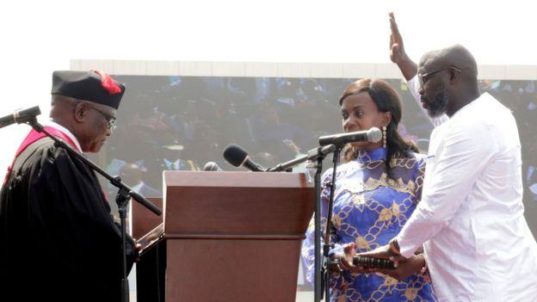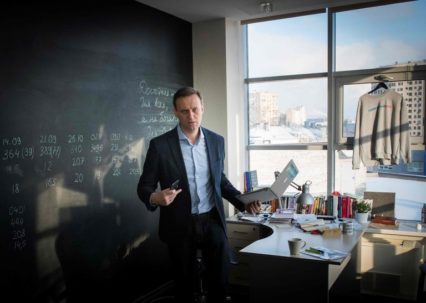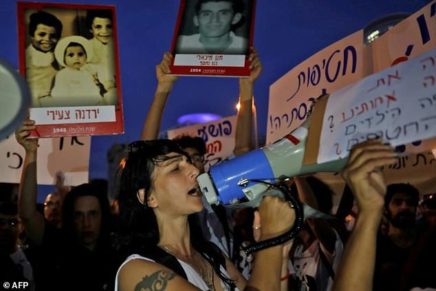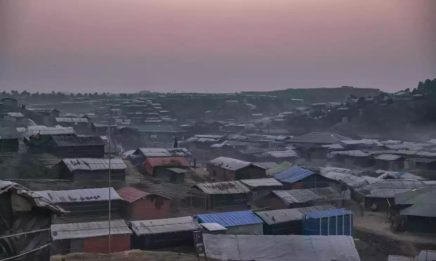|
| |
This week in: IPSI | Africa | Americas | East Asia | Europe & Central Asia | Middle East | South Asia
|
|
|
|
| |
This week in Sub-Saharan Africa
|
|
|
|
| |
DR CONGO: Catholic Church calls for rallies, as anti-Kabila protests turn violent
On Sunday, The Catholic church called for rallies around the country, despite a government ban on all demonstrations in place since September 2016. At least five people were killed and a dozen others arrested in Kinshasa as authorities cracked down on banned protests against President Joseph Kabila. The Catholic church leadership pledged to continue calling on their faithful to come out in peaceful protests, demanding electoral justice, respect for the constitution, and for president Joseph Kabila to peacefully step down. Comment: In office since 2001, Kabila’s constitutional term ended in December 2016, but he stayed on. Under an agreement brokered by the Catholic Church, he was allowed to stay in office, provided new elections were held in 2017. The flare-up in violence has stoked fear that the country could slide back into wars that killed millions in the 1990s, mostly from hunger and diseases. (Aljazeera, Voice of America, Daily Nation)
|
|
|
|
|
| |
LIBERIA: First Peaceful Democratic Transfer of Power in more than Seven Decades

|
|
On Monday, George Weah, Former international footballer star, was sworn in as president marking the first peaceful democratic transfer of power in the country in more than seven decades. He succeeded Ellen Johnson Sirleaf, Africa’s first elected female president. Weah won 61.5 percent of the vote in December’s election run-off, beating outgoing vice president Joseph Boakai who garnered 38.5 percent. In his speech, Weah promised to eradicate corruption in the country of four million people and bolster the weak economy. The country is also trying to overcome the effects of the Ebola outbreak which left more than 4,000 people dead. Comment: The last peaceful transfer of power between two democratically elected presidents took place in Liberia in 1944, when President Edwin Barclay was replaced by William Tubman. Liberia is one of the poorest countries in the world, with 80 percent of the population living on less than USD 1.25 a day. (Aljazeera, Daily Nation, Deadspin, The Telegraph)
|
|
|
|
|
| |
ZAMBIA: Schools, Churches and Markets Reopens After Cholera Outbreak
This week, schools, churches, and markets in the country are reopening three weeks after the government introduced a state of emergency due to a cholera outbreak. At least 74 people died of the disease since September last year. The cholera outbreak was initially linked to contaminated water from shallow wells, but further investigations indicated that contaminated food was the main culprit. Comment: Street vending and public gathering were banned in Lusaka where 58 people died. By January 20, the government had vaccinated about 1.3 million people, including inmates in congested prisons. (Aljazeera, Reuters, Express)
Researched/Written by Brian Adienge
|
|
|
|
|
| |
This week in the Americas & Caribbean
|
|
|
|
| |
BRAZIL: Court upholds corruption verdict against former President Lula
On Wednesday, former president Lula da Silva saw his plans to run for another term take a severe blow as three judges in the appeals court in Porto Alegre voted unanimously to uphold the ex-president sentence of 12 years and one month. While Lula currently leads in the polls the verdict could prevent him from running for office. Protestors took to the streets in Porto Alegre and Sao Paulo protesting the court’s ruling. Comment: Da Silva will continue to contest this verdict, and has stated that he will announce his candidacy in mid-August, expressing that his conviction was politically motivated and a threat to Brazilian democracy. (RioTimes, Guardian, NYTmes, Aljazeera)
|
|
|
|
|
| |
UNITED STATES: Senate reaches deal to end government shutdown
On Monday, after three days of governmental closure, the Senate and House approved a measure that will allow for the continuation of funding through February 8. A key part of the three-week funding legislation is that majority leader Mitch McConnell pledged to allow for an immigration vote in the upcoming weeks. With the February deadline looming, both Republican and Democrat lawmakers are rushing to broker a new deal. With divergent ideas on how to handle the Differed Action for Childhood Arrivals debate, many believe it will take the president himself to push for a conclusion. According to analysts, involving the president may also bring more issues to the floor for debate, only prolonging the discussion. Comment: With midterm elections quickly approaching, both parties are aware of public opinion while deciding on the immigration legislation that will affect more than 700,000 individuals. (NYTimes, NPR, BBC)
|
|
|
|
|
| |
REGIONAL: Latin American and Caribbean countries consider joining with China in an attempt to strengthen economic and political ties
On Monday, China invited countries from Latin America and the Caribbean to join the “One Belt, One Road” initiative. Due to President Trump’s more protectionist based policies, Latin American leaders see an appealing and expanding market in China. As of 2010, China is one of Latin America’s prime trade partners, testing U.S. dominance in the region. Comment: In addition, the threat of NAFTA dismantlement by the U.S. administration may provide the Chinese a new opportunity to build closer ties with Mexico. (Aljazeera, Reuters, Bloomberg)
Researched/Written by Connor Murnane
|
|
|
|
|
| |
This week in East Asia & Pacific
|
|
|
|
| |
AUSTRALIA: Fifty-eight refugees leave Australia for U.S.
On Tuesday, a group of 58 refugees boarded a plane to the United States, where they will be resettled after being detained in Australia. A deal to resettle up to 1,250 people was brokered under President Obama, and is being upheld by President Trump, although the recent ban on migration from certain countries is affecting the deal—none of the men are from Iran or Somalia. The United Nations High Commissioner for Refugees is administering the process, and is prioritizing women, children, families, and other refugees considered to be the most vulnerable. Comment: Canberra closed a detention center in Papua New Guinea last year, forcing asylum seekers and refugees to relocate to transit centers elsewhere on Manus Island. This policy is part of a long-running strategy to discourage human trafficking. (The Sydney Morning Herald, The Guardian, BBC)
|
|
|
|
|
| |
MYANMAR: Soldiers sentenced for killing civilians in Kachin
On Saturday, six soldiers were sentenced to 10 years in prison by a Myanmar military tribunal for killing three ethnic Kachin civilians in September 2017. Human Rights groups report that this type of prosecution is rare and could suggest movement towards the end of the military’s perceived impunity in Myanmar; however, concern remain that the trial was conducted behind closed doors. Comment: Violence between state forces and an ethnic rebel army in Kachin state has resulted in more than 100,000 displaced people. Myanmar’s army is routinely accused of human rights violations, including the recent reports of abuses towards Rohingya Muslims in Rakhine state. (Chiangrai Times, UCA News, NY Times)
|
|
|
|
|
| |
PHILIPPINES: Explosives expert with Mideast militant ties arrested
On Monday, Philippine intelligence operatives arrested an Iraqi explosives expert who had been eluding local authorities since last year; he is suspected of being in contact with Filipino militant groups. The man was identified as 64-year-old Taha Mohamed al-Jabouri, who served as a consultant for Hamas in Syria before moving to Turkey in 2012. Authorities report that Mr. Jabouri is a “chemist with knowledge of explosives” and is known to have ties to militant extremist movements in the Middle East. Comment: Mr. Jabouri arrived in the country last August as preparations were being made for a November summit meeting that included President Trump. Police have yet to establish if Mr. Jabouri has been involved in any illegal activity in the Philippines, or the specific threat the suspect may pose. (Philippine News, Arab News, NY Times)
Researched/Written by Leah Johnson
|
|
|
|
|
| |
This week in Europe & Central Asia
|
|
|
|
| |
GREECE: Greeks protest against use of the name “Macedonia” by the former Yugoslav Republic
On Sunday, tens of thousands of Greeks protested in Thessaloniki against the use of the name “Macedonia” by the former Yugoslav republic amid UN-led talks to resolve the long-standing name dispute. The talks started last week, after NATO Secretary General Jens Stoltenberg publicly stipulated that resolving the dispute with Greece was a prerequisite for Macedonia to join the alliance. Greece had repeatedly blocked attempts by Macedonia to join NATO. Protests turned violent as far-right demonstrators vandalized a Holocaust memorial and other public locations. Comment: “Macedonia” is also the name of a northern Greek territory on the border of the Republic of Macedonia. Many Greeks fear that the use of the same name by the former Yugoslav republic represents a territorial threat to Greece’s cultural identity. Greek Prime Minister, Alexis Tsipras, and Macedonian Prime Minister, Zoran Zaev, both stated that they hope to resolve the issue by July. (Radio Free Europe/Radio Liberty, Reuters, NY Times, Al Jazeera)
|
|
|
|
|
| |
ROMANIA: Tens of thousands of people protest against corruption bill
On Saturday, roughly 50,000 people protested in Bucharest against bills proposed by the Social Democratic (left-leaning) party that will allegedly make it more difficult to prosecute high-level officials in corruption and criminal cases. Protestors fear that these bills aggravate levels of corruption and lead the country backwards. On Wednesday, the European Union asked the Romanian parliament to reexamine the bills in order to maintain efficient justice laws. President Klaus Iohannis, of the National Liberal Party, is against the bills, but has to sign them before they become effective. Comment: The protests started at the end of 2017 and are the largest since the fall of communism in 1989; so far, they were mostly peaceful. Romania became a member of the EU in 2007, but political critics have considered the EU too soft in response to Romania’s policy decisions. (Deutsche Welle, Al Jazeera, The Guardian, Reuters)
|
|
|
|
|
| |
RUSSIA: Court closes campaign foundation of major political opposition leader
| |

|
On Monday, a Moscow court has ruled in favor of closing the Fifth Season foundation that supported the political work of Aleksei Navalny, Russia’s major political opposition leader. The court cited bitcoin donations from unknown sources as the reason for the closure. The Justice Ministry attempted to close the foundation earlier this year. Navalny and supporters believe this is a politically motivated act to enable the success of Putin’s fourth presidential run. Navalny appealed to the European Court of Human Rights and, on Wednesday, a hearing was held regarding possible rights violations; an immediate ruling is not expected. Comment: Navalny was previously in the running for the presidential election, which is to take place in March, but was hindered from continuing after being suspended for alleged fraud. Navalny subsequently promoted a boycott of the elections on January 28. (The Moscow Times, TASS, Radio Free Europe/Radio Liberty, AP, NY Times)
Researched/Written by Daniel Boerger
|
|
|
|
|
| |
This week in the Middle East & North Africa
|
|
|
|
| |
EGYPT: March presidential elections continue to lose candidates
As the March 26–28 presidential election approaches, two more candidates opposing Egyptian President Abdel Fattah al-Sisi’s opponents have exited the race. Sami Anan, former army chief of staff, was arrested on Tuesday on the charges that “warrant official investigation.” Human rights lawyer, Khaled Ali, announced that he was no longer running on Wednesday saying “the opportunity for hope in this presidential election has gone.” Mortada Mansour, a parliament member, is attempting to gain the 25,000 nominations from 15 governorates required by January 29 to be placed on the ballot. Comment: President al-Sisi gained power during a 2013 military coup and was elected President in 2014. If no one else is able to gain the necessary number of nominations, al-Sisi will be the sole contender for the presidency. (Al Jazeera, BBC, The Guardian 1, 2)
|
|
|
|
|
| |
ISRAEL: State authorizes opening of graves to search for stolen Yemenite children

|
|
On Tuesday, the Israeli state prosecutor’s office has authorized the opening of 18 graves and DNA testing of exhumed bodies to determine if the deceased were kidnapped from the Yemeni Jewish community in the 1950s. In the past decades, families of the deceased had repeatedly made appeals to the Israeli government to exhume the bodies. The current authorization marks the first time that the Israeli state has provided official consent to determine if any genetic links exist between those buried and the families whose children went missing. Comment: In 1949 and 1950, nearly 50,000 Yemeni Jewish refugees traveled to Israel via secret airlifts run by the Jewish Agency. Many believe that thousands of children were taken from the Yemeni Jewish communities by the wealthier east European Jewish communities – particularly by families who were unable to have children of their own. (Daily Mail, Haaretz 1, 2, The Guardian)
|
|
|
|
|
| |
SYRIA: Turkish assault kills 24 civilians and displaces an estimated 5,000
As of Monday, the Turkish assault to push the Syrian Kurdish Democratic Union party (PYD) along with its military wing, the People’s Protection Units (YPG), out of Afrin killed 24 civilians and displaced 5,000 people – according to the Syrian Observatory for Human Rights and the UN, respectively. Twenty-five Syrian rebels fighting alongside Turkey, 26 Kurdish fighters, and two Turkish soldiers also died. The UN is prepared to deliver aid to 50,000 people in the Afrin region. Comment: Turkish President Erdoğan rejected the United States’ appeal for restraint. Instead, he expressed Turkey’s intention to “crush” the YPG, whom he believes is affiliated with the illegal Kurdistan Workers’ Party (PKK). The PKK has engaged in operations against Turkey to achieve Kurdish autonomy in the south-eastern part of the country for 30 years. (BBC, The Guardian, The Washington Post, Reuters)
Researched/Written by Caleb Bowers
|
|
|
|
|
| |
AFGHANISTAN: Taliban claims attack on Kabul Intercontinental hotel
On Saturday, attackers armed with automatic weapons and dressed in military uniforms stormed the heavily guarded Intercontinental Hotel in Kabul. After an extensive gun battle that went into Sunday, Afghan special forces killed all five gunmen. The attack left 18 dead, 14 of whom were foreigners, and 22 wounded. The Taliban has claimed responsibility for the attack, and the interior ministry has launched an investigation into the attack to figure out how the gunmen were able to enter the heavily-guarded hotel. Comment: The Intercontinental Hotel in Kabul is frequented by politicians, journalists, and aid workers. A separate, yet recent attack, claimed by the self-proclaimed Islamic State occurred on Wednesday in Jalalabad targeting the offices of Save the Children, a foreign charity, killing 6 people and wounding 27. (Afghanistan Times 1, 2, Aljazeera, The Guardian 1, 2)
|
|
|
|
|
| |
BANGLADESH: Repatriation of Rohingya refugees delayed

|
|
On Sunday, foreign minister Abul Hassan Mahmood Ali, announced a delay in plans to repatriate more than 650,000 Rohingya refugees who had fled violence in Myanmar. The repatriation was set to begin on Tuesday following an agreement signed by the two countries in November. Bangladesh’s refugee and repatriation commissioner, Abul Kalam, mentioned the importance of the process being voluntary before citing delays in the building of transit camps and completion of paperwork for returning refugees as the reasons for the postponement. Last week, Rohingya leaders drew up a list of demands that need to be met before the refugees would voluntarily return, which include holding the military accountable, the rebuilding of their homes, and security and citizenship guarantees. Comment: The Rohingya are Muslims who live in majority-Buddhist Myanmar – mainly in the Rakhine region. Since 1982, they have been denied citizenship, rendering them stateless. (Aljazeera, The Guardian, Reuters)
|
|
|
|
|
| |
PAKISTAN: Suspected U.S. drone strike in the Kurram region
On Wednesday, Pakistan condemned a suspected U.S. drone strike on a house in the Kurram region. Pakistan claims the target was an Afghan refugee camp and emphasized the importance of the U.S. sharing intelligence to allow for more effective collaboration between the two countries in the fight against terrorism. According to reports by Reuters and the Express Tribune, two militants from the Afghan Taliban-allied Haqqani network and two Pakistani security officials were killed in the attack. Comment: Tensions between Pakistan and the U.S. have been high since the new South Asia and Afghanistan policy was announced. U.S. President Trump has taken an assertive stance on Pakistan, which he says provides safe haven to commanders from the Haqqani network. (Dawn, The Express Tribune, Reuters)
Researched/Written by Pamela Mhute
|
|
|
|